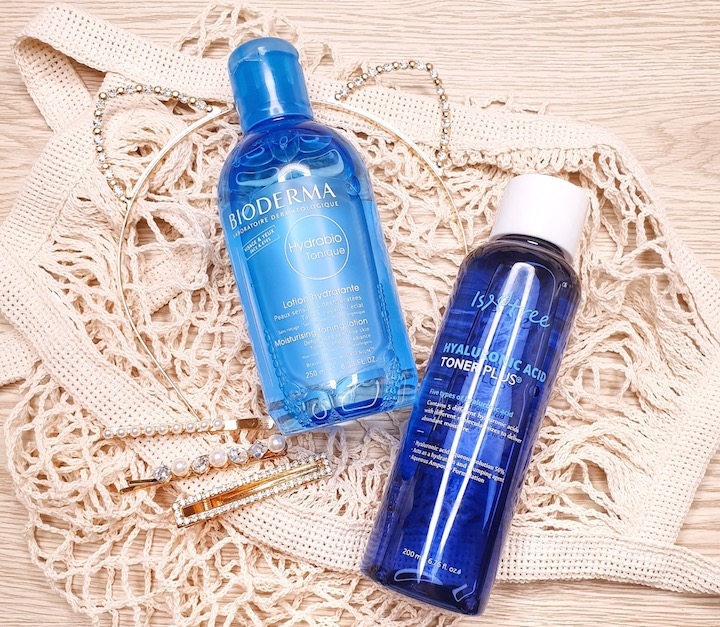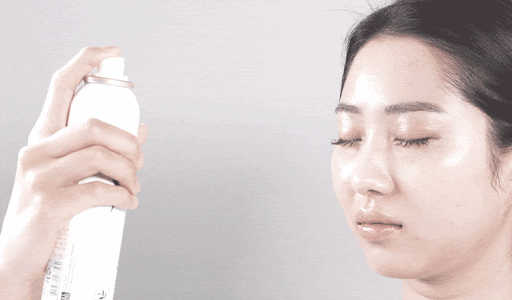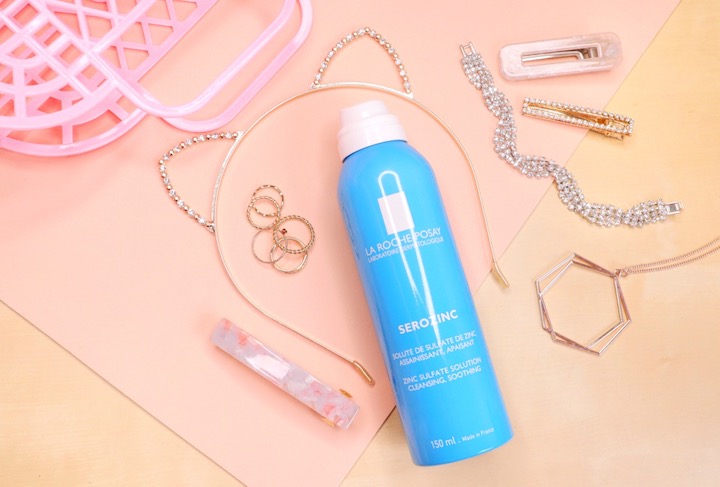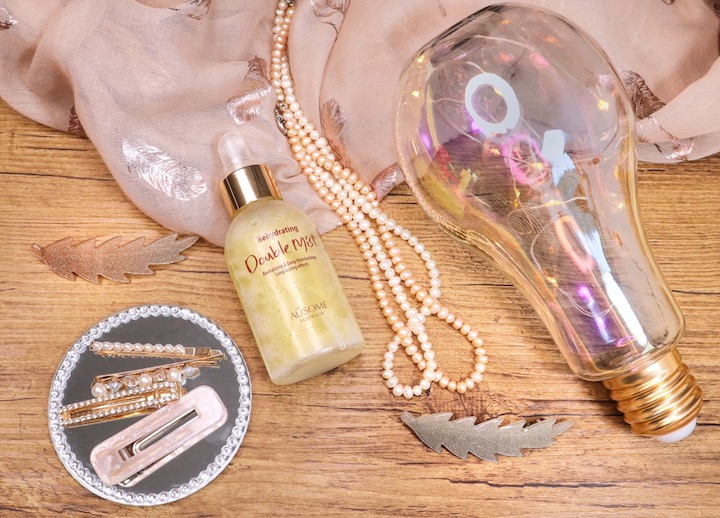3 French Pharmacy Skincare Lessons I Rediscovered After Blogging about Asian Beauty
One beauty obsessive discovers that skincare has come a full 360, and that Asian beauty and French skincare have a lot more in common than you think.
Being German, I basically grew up around French pharmacy skincare. In fact, when that big French pharmacy craze hit the rest of the world in the early 2010s, I found the hype slightly bewildering. As a beauty-obsessed teen, those boringly simplistic, clinically white or blue bottles and tubes were the antithesis of what I adored: baby-pink, vanilla-scented bath bombs and shampoo that smelled like freshly mashed-up bananas. In my 20s, however, years of living in New Zealand — with nary a European pharmacy brand in sight — taught me to deeply miss those minimalist French derma brands.
When I got interested in K-beauty in my 30s, I again felt at first more drawn to the flashier, cutesy product worlds of Tony Moly and Etude House. Those banana-scented products — their sweetly perfumed delights drew me in once more.
Now I’m not saying there is anything wrong with a bit of fun playtime using those adorable animal face sheet masks or slipping that panda hand cream into your purse, and I still get nostalgic seeing the Tony Moly Magic Food Banana Sleeping Mask that I once deemed the height of K-beauty sophistication. But what usually happens to Asian beauty converts is that they start to discover more and more “grown-up” brands, with far more stripped down branding and a more careful ingredient philosophy.

When I started to get into blogging and podcasting about Korean beauty, I steered further and further away from fruit-themed road shop brands. As I replaced those cutesy products with derma brands from Taiwan, Japan, and Korea that had mostly minimalist, clean and — oh would you look at that! — clinically white and blue packaging, I was struck by a sense of déjà vu. Could it be that French pharmacy skincare and Asian beauty have a lot more in common than I had previously believed?
I began to realize that the European derma brands, which my jaded teenage self considered to be so dull, had actually taught me many of the same skincare lessons my adult self had to relearn when blogging about Asian beauty. No wonder, since there are, indeed, a number of parallels between the basic tenets of French pharmacy and Asian skincare. The following three main lessons, to me, are probably the main ones that connect Euro derma brands with those from Asia.
Skin Lesson 1: “Water” doesn’t equal “water”
Avène, La Roche-Posay, Uriage, Vichy — these French pharmacy brands all have something vital in common: They were all founded in, and often even named after, famous French spa resorts that provided health regimens for numerous skin ailments as far back as the Roman Empire. Their renown as health resorts centers around naturally occurring thermal spring water bubbling underground, which often comes directly from the French Alps and has run through mineral-rich rocks and soil for thousands of years. This ancient healing water is the core ingredient in most French pharmacy products.
View this post on Instagram
And don’t you ever dare to make the mistake of assuming that French pharmacy thermal water, bottled and sold as a spray by pretty much all big name French skincare brands, is “just water.” These beautifully fine water mists are a whole different ball game compared to water spray you can get from drugstores in summer. Rich in minerals such as magnesium, calcium, and silicate, French thermal water has been proven to soothe inflammation and calm down aggravated skin. French parents even spray it on their babies’ bums when they have a diaper rash!
Asian skincare also likes to use “special water” that can do so much more than boring old tap water. Korea’s natural paradise and romantic hot spot number one, Jeju Island, provides a similarly pure, though maybe not quite as well-researched, spring water that enriches many hydrating toners and water-based serums.
Another classical ingredient in sheet masks, serums, and ampoules targeting dehydration issues is deep sea water. Similar to French spring water, deep sea water is abundantly rich in minerals and, of course, salt, which can act as an antibacterial skin soother. There is a reason why your skin looks so delightfully fresh after a swim in the ocean, or why people with skin diseases are often sent to convalesce in seaside towns. Deep sea water also has the added benefit of being less affected by pollution than regular ocean water. Used in skincare products, it helps guard against dryness and replenishes moisture in thirsty skin.

Skin Lesson 2: Facial mists are everything
This fact, of course, is closely connected to fact number one, since water sprays and mists are such a staple in any French skincare routine. I don’t think I ever considered buying an extra spray mist for my face, however, until I started watching the Korean variety show Get It Beauty, where pretty much every K-drama actress I admired for her perfectly dewy complexion talked about misting her face continuously throughout the day.
This was also around the same time that La Roche-Posay’s Serozinc spray mist became a global phenomenon. This fragrance- and alcohol-free mix of redness-calming zinc solution and, again, that French thermal water, was one of the first facial mists that I tried, and it still to this day remains one of my go-to S.O.S. remedies on skin freakout days.

As much as I love my French thermal water sprays, the Serozinc mist or that beautifully plumping Caudalie Eau de Raisin, I have to say that Korea in particular has really mastered the art of creating the perfect facial spray mist. My current favorite is from Ausome, a sister brand of organic K-beauty miracle Whamisa. These are bi-phase mists that combine an oil phase with a mix of floral hydrosols and fermented plant extracts. The spray mist is so fine that I only use a minimal amount each time, and my skin looks delightfully dewy after each spray.

Another oil and water mist darling of mine from Korea at the moment is the Sioris Time Is Running Out Mist with Japanese plum water. I am also eyeing up the popular D’Alba First Spray Mist Serum, which is called the “cabin crew mist” in Korea, because flight attendants swear by its glow-enhancing effect!
View this post on Instagram
Skin Lesson 3: No need to be afraid of mineral oil or silicones
I know that mineral oil and silicones get a bad rap in many parts of the skincare community, and especially the current natural beauty craze has declared both of them the devil incarnate. This, however, is mostly based on a misrepresentation of facts, such as the idea that silicones create some kind of impenetrable barrier on your skin that prevents it from “breathing,” or that just because it is won from crude oil, petroleum, another name for mineral oil, is somehow just as “unclean” and “harmful.”
Medical grade mineral oil does, in fact, have some pretty great properties that can help especially people who suffer from sensitive and dry skin. The same is true for silicones, which are, as a general rule, well-tolerated by most people. This is why French pharmacy brands use both mineral oil and silicones frequently in their body and face creams, especially those that target very dry, sensitive and even eczema-prone skin. Mineral oil and silicones are so-called occlusive ingredients: They act as a water-repelling sealant, helping the skin to protect itself from water loss and supporting skin barrier health.
View this post on Instagram
Asian brands likewise do not shy away from using mineral oil and its many derivatives, and silicones, too, are pretty standard ingredients in creams and gels. For instance, cleansing balms such as the good old trusty Banila Co. Clean It Zero effectively melt away oil-based makeup and sunscreen precisely because of their mineral oil content. And parched winter skin won’t receive much of a benefit from all those delicious hydration layers created by your K-beauty toners, ampoules, and serums without sealing them all in with a mineral oil-based sleeping cream.
Truly, I discovered that the main reason I’m obsessed with both French pharmacy and Asian beauty skincare textures is their reliance on silicones as a way to create those exceptionally smooth, pleasant formulas, which create a velvety soft feel on the skin.
If my 40-year-old, Asian skincare obsessed self would travel back in time to tell young, acne-plagued me to give those boring Euro brands from the pharmacy next door a try, she’d probably scoff with consternation. Even 33-year-old me, obsessed with those super adorable Tomatox and Panda White creams, could never have foreseen that my deep love for Korean beauty products in particular would lead me back to where it all started — to those no-nonsense, minimalistic treasures with white and blue packaging.
Loading...